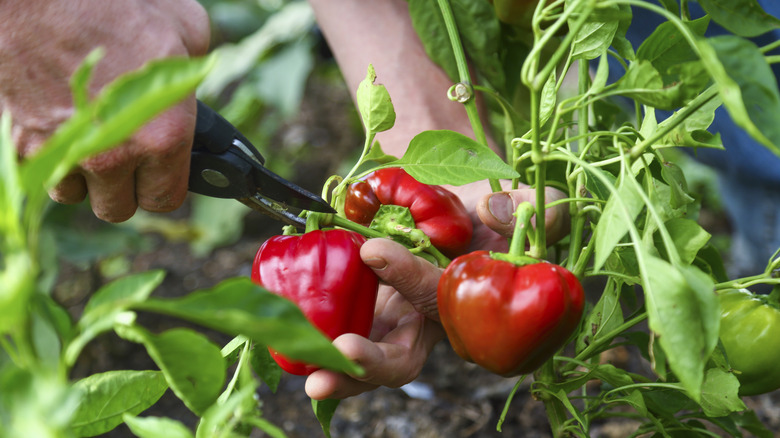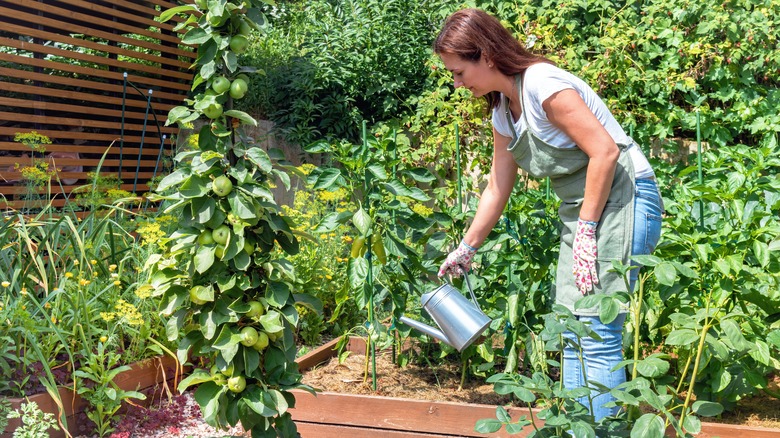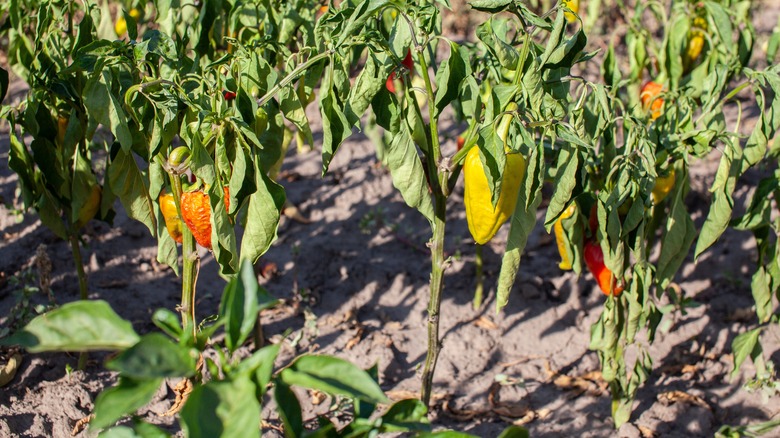The Biggest Mistake To Avoid When Growing Peppers In The Garden From House Digest's Master Gardener
With thousands of species of cultivated peppers available to grow, there are options for every flavor palette. Some varieties of sweet bell peppers can be harvested when they are green, yellow, orange, red, or purple. There are even gorgeous black bells that make a striking addition to the dinner plate. If your tastes lean more toward spicy peppers, many types of jalapenos exist. For those who want food that tastes like the surface of the sun, you can add Carolina reapers and ghost peppers to your garden. While there is a huge difference in the flavor — and pain level — between varieties, watering your pepper plants too much or too little can cause big problems.
Peppers are pretty easy to grow, but they have some requirements. They need warm soil, full sun, and a weed-free space to thrive. Mulching around your plants can help suppress weeds while keeping the soil consistently moist by reducing evaporation. Regular, deep watering as needed will help keep your plants healthy, but only water when necessary.
Overwatering can cause irreversible damage
Although overwatering and underwatering can damage your pepper plants, overwatering is the most damaging of the two. This is particularly true in dense clay soils that retain moisture significantly more than sandy or loamy soils. In this type of soil, overwatering leads to soggy conditions, which causes root rot. This condition is very difficult for plants to recover from, and if they do, they will be weakened.
The frequency with which you water your peppers depends on many factors, so you'll need to be able to read the soil conditions. Plants will need more water when it's hot, windy, or there has been a lack of rain. Similarly, you won't need to water nearly as often if the weather is cool and you're getting regular cycles of rain showers. Clay soils will require less frequent watering than sandy conditions. Mulching around plants is an additional consideration. If you are not sure if your soil is retaining moisture, dig a hole about 6 inches deep. If it fills with water within the hour, your ground is saturated.
Underwatering can also ruin your pepper plants
Unless you completely stop watering pepper plants in a drought, they will likely recover, but not without some losses. If you are away on vacation during a dry weather spell, or life just gets busy and you can't stay on top of watering, your pepper plants will show signs of stress. The first thing you might notice is the fruits become shriveled before they mature due to insufficient water. The plant may also drop blooms or fail to produce them to conserve water in the roots and stem. A longer period without water will cause leaves to droop. These are all signs that your pepper plants need deep watering. If you add water at this point, they should rebound and start producing blooms again.
Left unattended without water for too long, leaves will eventually turn brown and fall off. If you lose a significant number of leaves, recovery will be difficult. Even if the plant starts producing peppers again, it may not have sufficient leaf coverage to prevent sunscald, which will ruin the fruits before they can mature. Instead of watering on a regular schedule, check your soil. You can prevent too much or too little moisture by only watering when it is dry 1 inch below the surface of the soil.


